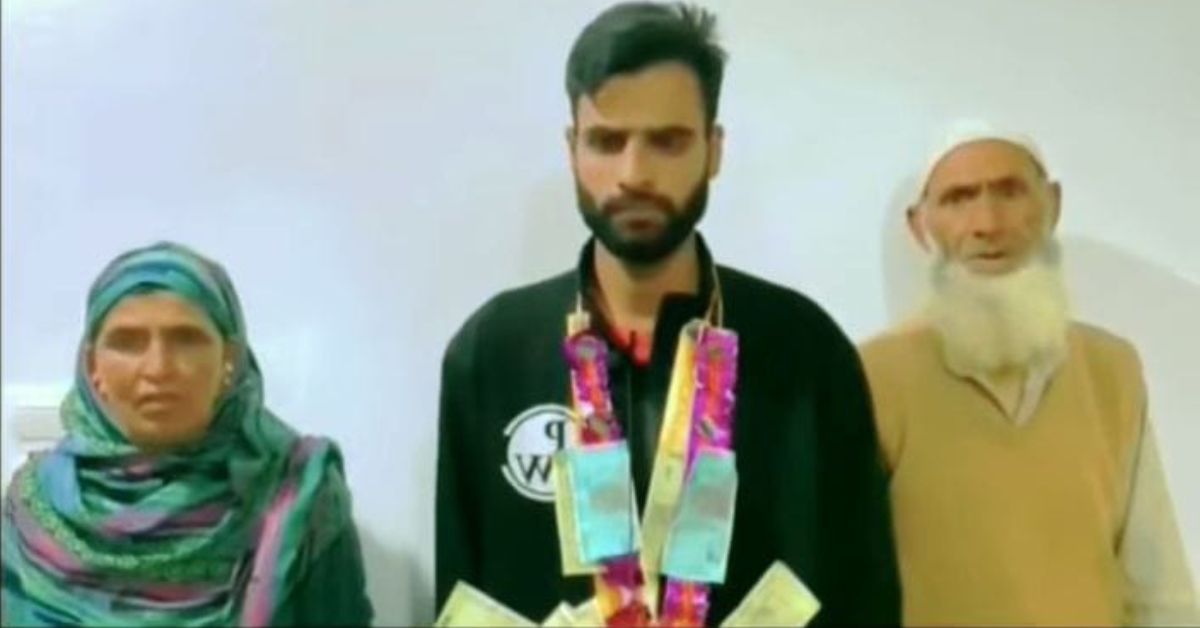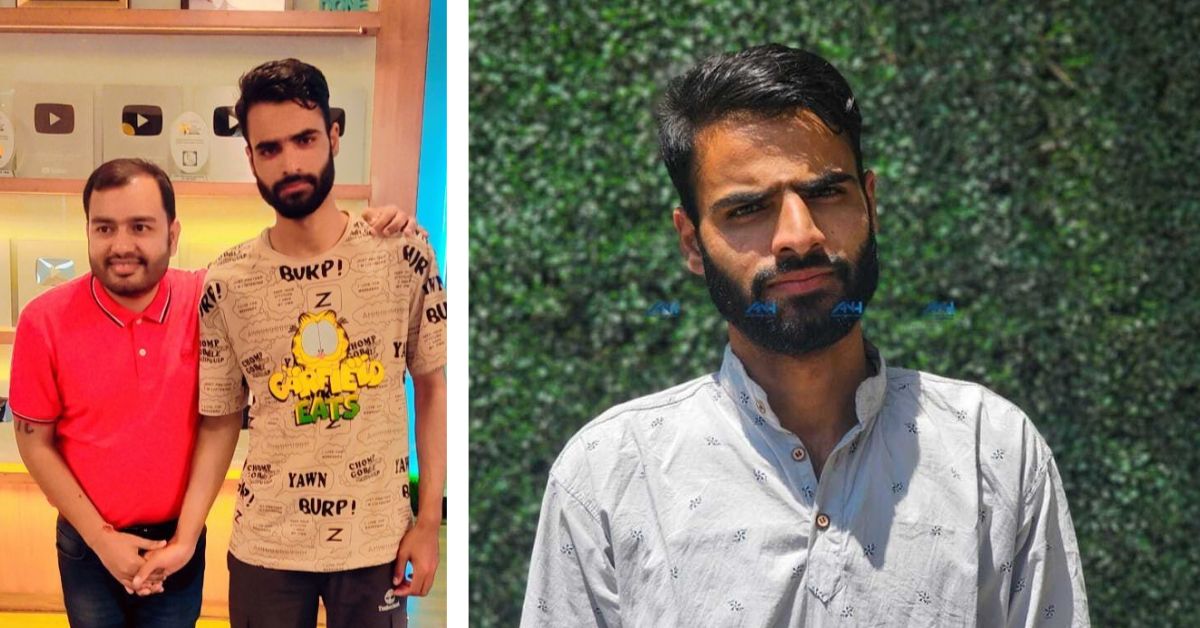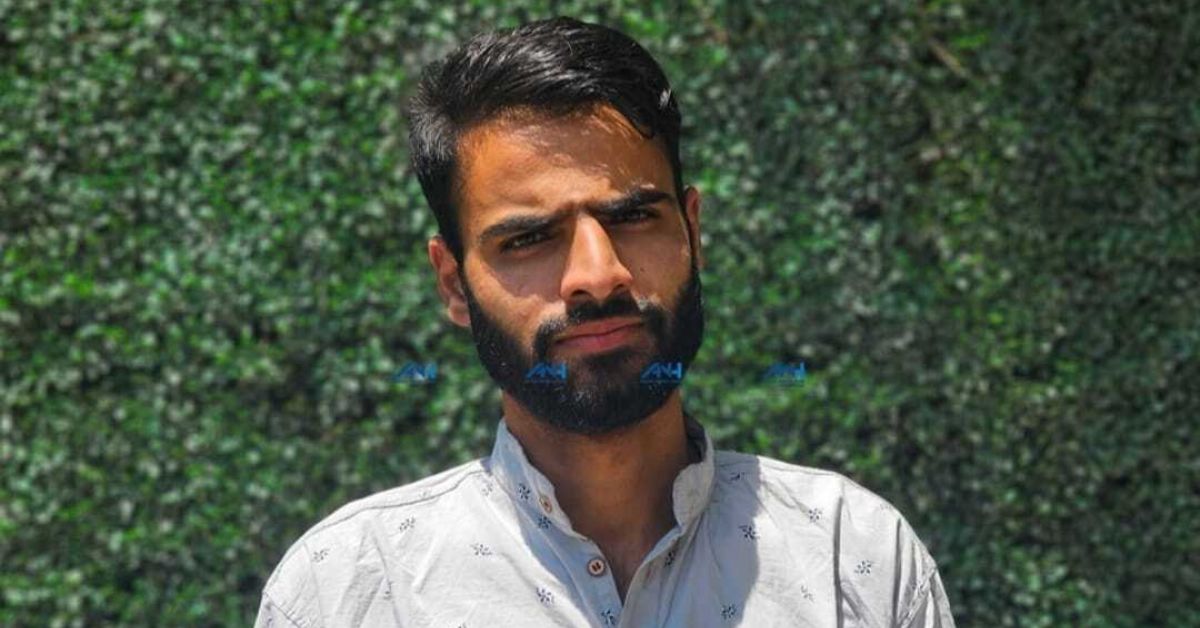Nestled amid the lush green hills of Pulwama district in Kashmir, the quaint little village of Zagi Gam did not see much attention from the world, until recently.
A native of the village, 19-year-old Umer Ahmad Ganie cracked NEET (National Eligibility cum Entrance Test) with an impressive score of 601 out of 720, becoming a beacon of inspiration for the children in his neighbourhood.
This year, over 18 lakh students registered for NEET, considered one of the toughest exams in the country. So for Umer, who also bears the responsibility of being the family’s breadwinner, preparing for the medical entrance exam was even more challenging than it is for most.
A childhood full of struggles
Living in a household of five, including his parents and three siblings, Umer had seen poverty in its crudest form since he was a little boy. By the time he turned 16, Umer and his brother had to start working to support the family.
“Financial circumstances in the family were never great but they grew worse as my father aged. Now, he is constantly ill and is unable to work. My brother and I work odd jobs to support the family,” he informs.
Always a bright kid in school, even when Umer was forced to work, he had made up his mind not to give up his education. “I went to a government school in my village, but it offered education only up to the primary level. My village did not have a higher secondary school, so I joined a school in Pulwama. After completing high school, I decided to get a day job and earn money for my family,” he says, adding that he wanted to support his brother with the extra income.

“Another reason why I worked as a labourer was so that I could afford my education. Due to the low-income situation at home, my family couldn’t support me further. I had to find a way to support myself,” he says.
Umer started to work as a daily wage worker, mostly working as a painter. He earned Rs 550 a day, which he used to pay for his books and to bring food for the family.
Breaking the cycle of poverty
About his dreams and aspirations, Umer remarks, “Ab is gareebi se bahar nikalna hai.” (I want to break this cycle of poverty).
He continues, “When you are young, you dream of different things unaware of the circumstances life may throw at you. When I was a kid, I dreamt of becoming an IAS officer. But as I grew up, I realised how much money this would cost me. For starters, I will need a graduation degree!”
“So, if you ask me now what I want to be, I’ll simply say I want to break this cycle of poverty. Generations in my family have suffered and will suffer until someone goes out and does something differently,” he says.
The idea of becoming a doctor came to Umer when he was in high school. He wants to help poor people and earn a stable income to support his home. “I would spend most of my time thinking about ways of getting out of this hard life of extreme physical labour. This motivated me to work hard towards my goal every day,” he shares.

While the entire village slept, Umer would be up at 3 am to start his day. “After school and work, I would return at 7 pm. Once home, I would not waste even a minute after that. I used to study till midnight and then get a couple of hours of sleep, then wake up to study some more,” he shares.
“I followed the routine very strictly because I knew that if I am not consistent then I won’t be able to crack the exam and will have to wait another year,” he adds.
Talking about his routine and his motivation, he says, “The routine was very tiring, and I would not get enough rest sometimes. But I had to do it! I kept believing in myself and that my hard work would pay off. I kept picturing a time when my family and I would be out of poverty…not worrying about money.”
‘Learn, revise and repeat’
To crack the NEET exam, most of the aspirants turn towards coaching and private assistance. But for Umer, that was not an option. “I could not take any coaching because of two reasons. One, I could not afford them, and two, I couldn’t spare the time to attend extra classes while I juggled school and labour. Instead, I used the internet and NCERT to crack the paper,” he says.
While he was looking for resources online, he found some helpful lectures on YouTube. “I also found a free lecture online by Physics Wallah and then decided to take that course. It was for Rs 3,500, which I could afford. That helped me a lot too,” he says.
Umer shares these tips for future aspirants:
“The most important thing that every aspirant should keep in mind is to learn everything that the NCERT books offer. Many times, aspirants focus only on the notes got from coaching classes, but that will not cover everything,” he says. “Focus on the NCERT syllabus, and you will easily get good marks.”
He also advises them to revise everything. “Make thorough notes and bullet points. Then keep revising them so everything remains fresh in your head.”
He acknowledges that preparing for the exam can be stressful. “It is one of the toughest exams and preparing for it can make you anxious. However, I always tried to keep myself calm and focused on the material rather than the result. My parents would always say, ‘If you give your 100 percent effort, good results will come’, and I wholeheartedly believed in that,” he says.

Finally, Umer also urges everyone to go through previous years’ papers to get an idea of what the current paper might be like. “I solved exam papers from 2013 to 2022, which really gave me valuable insight,” he says.
As Umer eagerly awaits for the counselling to begin, he says that there is a long road ahead but he is ready for it.
His exceptional performance earned him financial aid of Rs 10 lakh from the ed-tech startup Physics Wallah, enough to cover his counselling fees and college expenses.
Reflecting on his journey so far, Umer says, “My parents and siblings were very supportive throughout the process. And when the results finally arrived, they were more excited than me. It is their belief in me that has kept me going, and I hope I will be able to earn a stable income for my family soon.”
(Edited by Pranita Bhat)
No comments:
Post a Comment